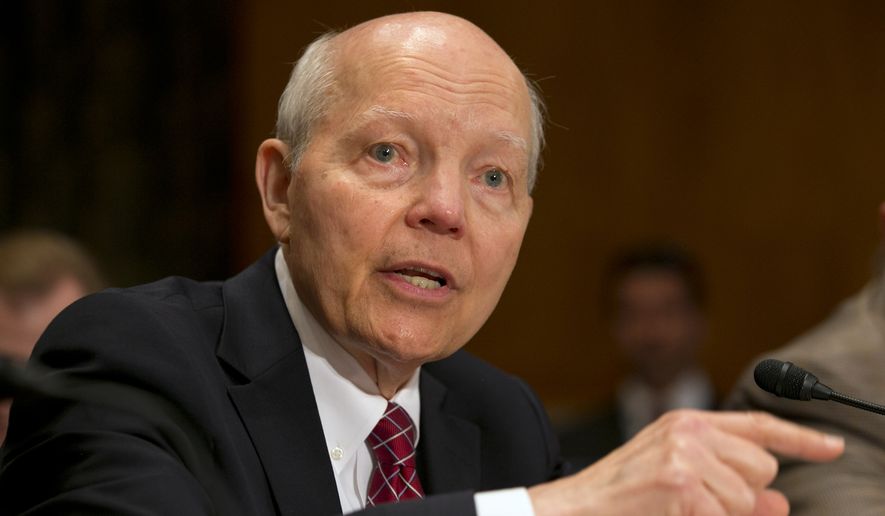The IRS made the 2015 tax season more painful for taxpayers than it should have been, the agency’s inspector general said in a report Thursday that accused the agency of cutting money for customer service and ignoring phone calls while moving the money over to keep Obamacare and other administration priorities on track.
IRS employees ignored more than 30 million phone calls from desperate taxpayers seeking help in the run-up to the 2015 filing deadline — and those who did get through often waited a half-hour before getting help.
The IRS apologized publicly for the poor service and blamed Congress, saying lawmakers needed to pony up more money if they wanted better results.
But Inspector General J. Russell George said the IRS cut its own funding by eliminating nearly $150 million from customer service and slashing more than 2,000 staff positions.
The findings confirm what congressional Republicans charged as they reviewed the tax agency’s books.
“The IRS is running out of excuses for its abysmal customer service record and poor management decisions,” said House Ways and Means Committee Chairman Kevin Brady, Texas Republican. “This new report is even more proof the IRS is failing the very people it was created to serve: American taxpayers.”
Congress did add more money for the agency last year, and the IRS doubled the number of calls it was able to answer. The agency has promised to maintain that level of service this year.
But 2015 marked a low point for the IRS, which was battling a hostile Congress.
In the wake of the tea party targeting scandal, lawmakers trimmed funding for some areas of IRS operations — though they tried to keep the level of funds for customer support steady.
The IRS, however, wanted the money spent elsewhere, so it cut the funding from user fees that went to customer service and funneled it to operations.
Mr. George said taxpayer services received $185 million in user fees in 2013 — about 55 percent of all fees collected. By 2015, that had been cut to less than $40 million, or less than 10 percent of the fees collected.
IRS officials said the money was needed to help carry out the agency’s other duties, including enforcing the tax penalties in the Affordable Care Act, extending a health coverage tax credit and seeing through new laws on foreign income tax compliance.
The IRS also said it thought answering written correspondence was more important than answering phones, so it shifted employees’ focus.
That turned out to be a bad move, Mr. George said. He said IRS predictions of a spike in correspondence didn’t materialize.
Debra Holland, the IRS commissioner for the wage and investment division, disputed Mr. George’s conclusion and called it an “opinion made with the benefit of hindsight.”
She acknowledged, though, that the IRS siphoned money from customer support to fund basic operations.
“A decision was made to allocate a greater amount of user fees to operations support than had been done in previous years, permitting us to provide basic taxpayer services, process tax returns and address other obligations of tax administration,” she said.
The number of employees in taxpayer services was cut from 29,646 in 2013 to 27,476 by 2015, and each employee handled fewer calls. The inspector general said the average full-time employee answered nearly 3,900 calls in 2013 and 2,900 in 2015.
IRS officials explained the drop by saying they began pushing taxpayers to use online services for easy issues, and the calls they did receive presented more complex problems that tended to take more time.
Just 38 percent of calls were answered in 2015, down from 61 percent in 2013 and 64 percent in 2014.
• Stephen Dinan can be reached at sdinan@washingtontimes.com.




Please read our comment policy before commenting.